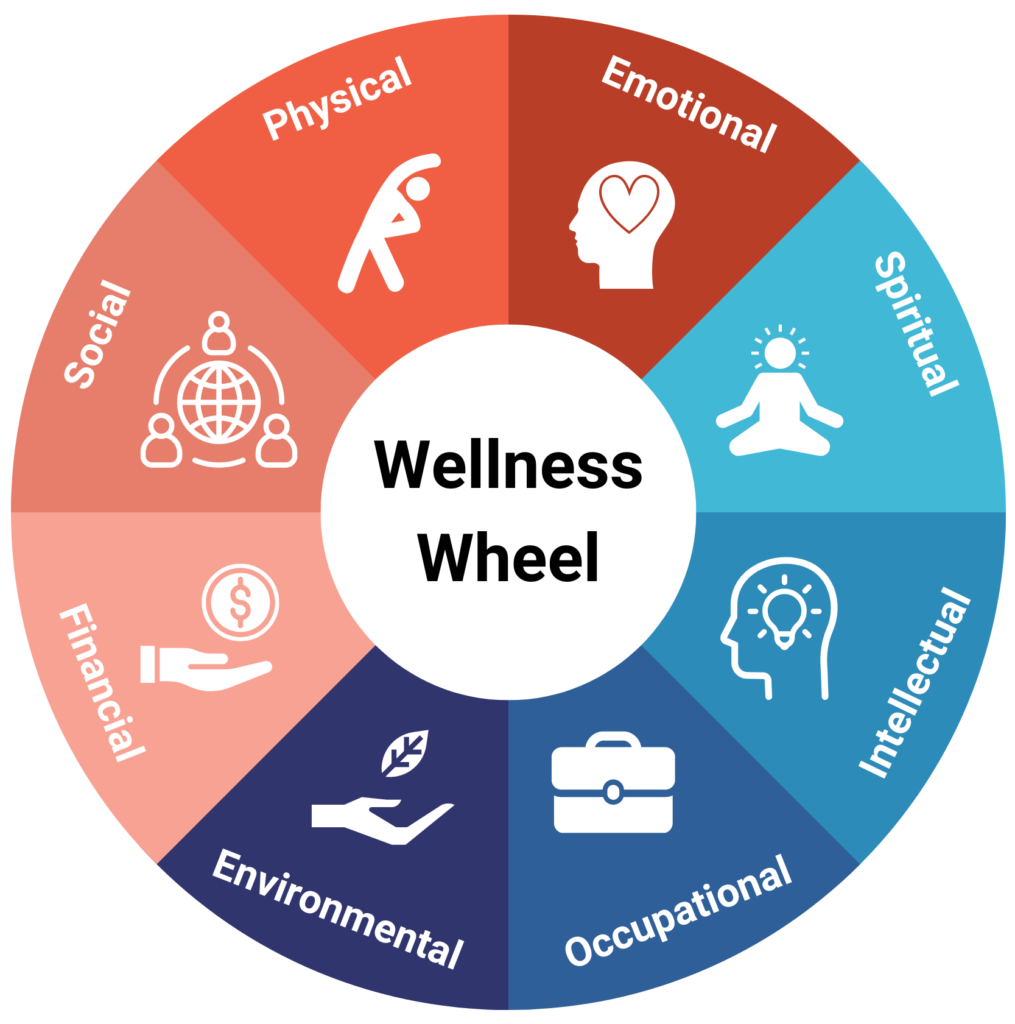
What is Holistic Health?
Holistic health is an approach to well-being that considers the whole person—mind, body, and spirit—rather than just treating symptoms or diseases. It emphasizes the importance of balancing and nurturing all aspects of life to maintain health. Holistic health promotes harmony and encourages individuals to take responsibility for their own well-being, focusing on prevention, self-care, and emotional healing.
This approach can complement traditional medical treatments, or it may serve as a primary method for those seeking a more natural, balanced lifestyle. By looking at the root causes of health issues, holistic health encourages long-term wellness rather than just short-term fixes.
Key Principles of Holistic Health
Holistic health is based on several key principles that guide the journey toward complete well-being.
Balance
Balance is a core concept in holistic health. Life can be chaotic, and many people find themselves out of balance—whether it’s too much work, too little sleep, or an emotional overload. Achieving balance in all areas of life, from physical activity to mental rest, is essential for maintaining overall health. This balance helps prevent burnout and promotes longevity.
Mind-Body Connection
The connection between the mind and the body is powerful. Our thoughts and emotions can have a profound impact on our physical health, just as physical illnesses can affect our mental state. Holistic health practices aim to harmonize these two elements, acknowledging that mental well-being is just as important as physical health. Managing stress, practicing mindfulness, and addressing emotional needs are all part of this vital connection.
Preventative Care
Prevention is central to holistic health. Rather than waiting for illness to strike, holistic health encourages proactive care—healthy eating, regular exercise, stress management, and regular check-ups. This approach seeks to keep you healthy and well, avoiding illness before it has a chance to take root.
The Pillars of Holistic Health
Holistic health is built upon several foundational pillars that support a well-rounded approach to wellness.
Physical Health
Physical health involves taking care of the body through exercise, proper nutrition, and sufficient rest. Activities like yoga, walking, and swimming promote cardiovascular health and strengthen muscles. Eating a balanced diet that nourishes the body with essential vitamins and minerals is equally important. Regular self-care, like getting enough sleep, can also rejuvenate the body.
Mental and Emotional Health
Mental health is just as important as physical health in the holistic approach. Emotional well-being affects how we handle stress, relate to others, and make decisions. Practices like meditation, journaling, and therapy can help improve mental clarity and emotional stability. Healthy emotional habits ensure that stress is managed, and feelings are acknowledged and processed.
Spiritual Health
Spiritual health refers to connecting with something larger than oneself, whether through religion, personal beliefs, or connection to nature. Spiritual practices like meditation, prayer, or mindful walks allow individuals to find peace and purpose. Cultivating gratitude, living with intention, and having a sense of connection with the universe are all elements of spiritual well-being that support https://www.bigbutthos.com/.
Holistic Health Practices
Holistic health encompasses a range of practices designed to address and nurture the mind, body, and spirit.
Meditation and Mindfulness
Meditation is a powerful practice for calming the mind and reducing stress. By focusing on the present moment, you can gain clarity and reduce anxiety. Mindfulness, the practice of being aware and present, helps individuals maintain focus and emotional balance. These practices have been shown to reduce blood pressure, improve sleep, and enhance overall mental health.
Yoga and Physical Exercise
Yoga is an ancient practice that combines movement, breathing, and meditation to improve flexibility, strength, and mental clarity. It enhances the mind-body connection by encouraging mindfulness during physical activity. Regular exercise, in any form, is essential for holistic health, as it strengthens the body, improves circulation, and boosts mood.
Nutrition and Diet
Nutrition is a fundamental part of holistic health. Eating nutrient-dense, whole foods nourishes the body and promotes vitality. A balanced diet rich in fruits, vegetables, lean proteins, and healthy fats can improve digestion, strengthen the immune system, and increase energy levels. Holistic health also encourages mindful eating, which involves being present and appreciating the food you’re consuming.
The Role of Alternative Therapies
Many holistic health practitioners use alternative therapies to promote healing and balance.
Acupuncture
Acupuncture involves inserting thin needles into specific points on the body to stimulate energy flow and balance. It’s often used to treat pain, stress, and other health conditions by restoring harmony in the body’s energy pathways.
Aromatherapy
Aromatherapy uses essential oils from plants to improve mood, reduce stress, and promote relaxation. Scents like lavender, eucalyptus, and peppermint are often used in diffusers, baths, or massage oils to encourage emotional and physical healing.
Herbal Medicine
Herbal medicine involves using plants and natural remedies to treat various health issues. Many herbs, such as turmeric, ginger, and echinacea, have been used for centuries to support health and wellness. Herbal treatments can complement conventional medicine and are often used to strengthen the immune system, reduce inflammation, and support digestion.
How Holistic Health Improves Quality of Life
Holistic health practices lead to a higher quality of life by promoting mental clarity, emotional balance, and physical wellness.
Stress Reduction
Chronic stress is detrimental to both mental and physical health. Holistic health practices like meditation, yoga, and deep breathing exercises are proven to reduce stress levels and enhance relaxation. By adopting these practices, individuals can improve their resilience to stress and enjoy greater emotional stability.
Enhancing Immunity
A strong immune system is essential for preventing illness and maintaining overall health. Holistic health practices such as a nutritious diet, regular exercise, and stress management boost the immune system. By nurturing both body and mind, you can strengthen your defenses against illness and live a healthier life.
The Challenges of Holistic Health
While holistic health offers many benefits, there are some challenges to consider.
Accessibility
One challenge is the accessibility of holistic health care. Depending on where you live, it may be difficult to find qualified practitioners or services, especially when it comes to alternative therapies like acupuncture or herbal medicine. However, many holistic practices, like meditation and yoga, can be practiced at home.
Balancing Modern Medicine and Holistic Practices
Many people wonder how to balance conventional medicine with holistic health practices. The answer is often integration. You don’t have to choose between modern medicine and holistic approaches—many people find that combining the two helps them achieve optimal health. Always consult with a healthcare professional before making significant changes to your treatment plan.
Conclusion
Holistic health is about taking a well-rounded approach to well-being that nurtures the body, mind, and spirit. By embracing balance, mindfulness, and preventative care, you can improve your health in a way that supports long-term wellness. Whether through diet, exercise, meditation, or alternative therapies, holistic practices allow you to connect deeply with your body and mind for a fulfilling, healthy life.







